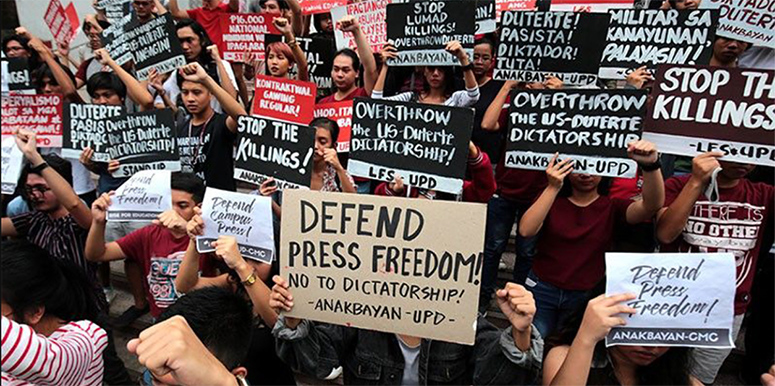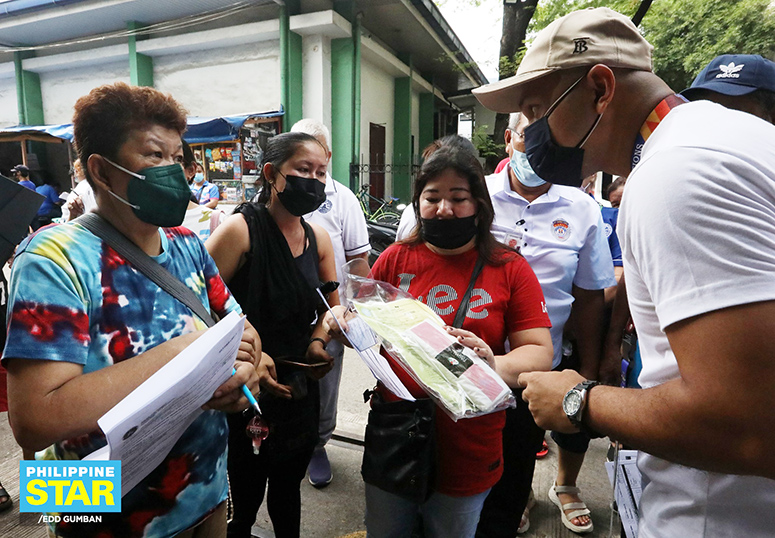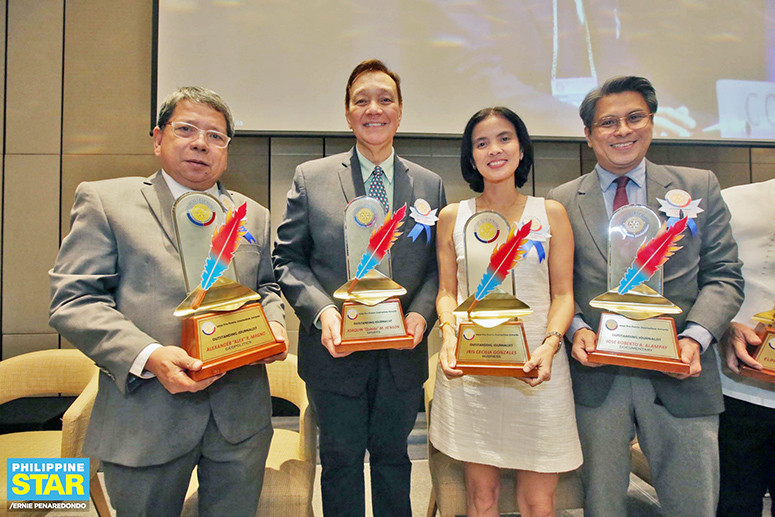A free and independent press: The mission of journalism cannot be compromised

The Philippine STAR is turning 36 with some cause for celebration. The country is emerging from two years of illness, death and economic devastation caused by a once-in-a-century pandemic.
We have not been spared from personal loss. In the past year alone, COVID-19 has claimed people dearest to us, relatives, friends, acquaintances.
The STAR has not escaped the economic impact of the pandemic; we had to let go of some of our workforce. This was painful for an enterprise that from the start saw business as a way of empowering people through the provision of meaningful employment.
What cannot be compromised, even through the worst of times, is the mission of journalism: to deliver news that has been fact-checked, that is as accurate, objective, and fair as possible, and that offers insightful analysis to help people make sense of what’s happening around them.

The role of a free and independent press in society has become misunderstood amid the explosion of other sources of information on social media. Besides the risks from COVID-19, the past two years have posed another challenge to news coverage in this country: the pervasiveness of social media, where anonymity allows the easy spread of lies, black propaganda, disinformation, misinformation, and revision of history.
Pandemic lockdowns forced millions to use digital technology for many aspects of life, from formal education to buying groceries and accessing information. But the forced shift was not accompanied by even basic lessons on digital literacy. Fake news, disinformation, financial scams, and e-commerce fraud have proliferated.
In newspapers, the news is set apart from the opinion section, to distinguish articles with personal viewpoints, angles, or biases on particular issues from reporting that must be balanced and objective.
A government that demands merely hosannahs in news coverage will one day see its leaders doomed, like the emperor who walks around naked while his sycophants marvel that he looks terrific in his non-existent goldwork tunic and royal mantle.
In a straight news report, adjectives are used sparingly and, as much as possible, only with attribution. Opinion writers are free to bring color to their articles, without risking a criminal and civil conviction for libel due to malice.
Journalism is a specialized discipline that requires a certain way of precise writing, without the stylized flourishes that are featured in many works of fiction. There is a hierarchy of beats or assignments requiring varying levels of experience and competence for proper news coverage.
Today, too many people without the training required for journalism are churning out what they present as news without drawing the line between opinion and straight reporting.
While this utter confusion over what constitutes journalism is most prevalent on social media, it has also crept into some sectors of traditional media. Charges of biased reporting by some quarters in traditional media flew throughout the toxic campaign for the 2022 elections.

Long-time consumers of news on what is described as traditional, institutional, or legacy media are aware that among the roles of a free press is to expose the ills in society even while celebrating well-earned triumphs. In societies where public service suffers from officials’ venality or incompetence, an independent press usually takes an adversarial role in relation to the government.
There is the saying that the press comforts the afflicted and afflicts the comfortable.
A free press is a public trust. That trust must be earned through credible reporting and analysis of current events.
A government that demands merely hosannahs in news coverage will one day see its leaders doomed, like the emperor who walks around naked while his sycophants marvel that he looks terrific in his non-existent goldwork tunic and royal mantle.
An upside of current controversies regarding social media (we hope) is improved public understanding of what journalism is about and the role of institutional media.

Information, like other commodities, has degrees of reliability, with the lowest quality given away for free.
You have to pay for the expertise required for credible news and informed commentary. Premium information is not free; for specialized information, companies even pay hefty consultancy fees.
Some years ago, certain institutional media organizations in mature media markets ventured into the production of newspapers given away for free in high-traffic areas such as subways. There were few takers and the ventures were scrapped. People equated free newspapers with trash reporting.
The vote is the bedrock of democracy, the ultimate manifestation of people power and representative government. When the vote is based on distortions of the truth, governance is compromised, and the people suffer the consequences.
In advanced economies where a high level of literacy allows information consumers to be more discerning and selective about their news sources, even media organizations funded by taxpayers cannot survive by churning out “praise releases.” We see this in the durability anchored on the credibility of reporting in the state-funded British Broadcasting Corp.
A free press is a public trust. That trust must be earned through credible reporting and analysis of current events, for any legitimate media organization to be viable and flourish.
Many consumers of information on social media are unaware of the vetting and preparation that goes into every story and image before publication or airing on traditional media. This process of filtering the most relevant and interesting developments of the day, and then putting the story through a system of editing, is non-existent in opinionated social media posts presented as journalism.
Those who value their civil liberties must appreciate the role of a free press in promoting informed choices during elections. The vote is the bedrock of democracy, the ultimate manifestation of people power and representative government. When the vote is based on distortions of the truth, governance is compromised, and the people suffer the consequences.
Processing current events into stories that are timely and interesting to news consumers does not come free. Traditional media must worry not only about the quality of reporting but also revenue streams. Businesses that appreciate open societies must understand the need to help maintain a vibrant free press.
The pandemic-induced recession has affected those revenue streams. But even before the pandemic, some media entities have compromised editorial integrity to accommodate sources of financing for their operations. Discerning consumers of news, however, see through biased reporting, and compromised media organizations tend to struggle for survival.
The logo of our newspaper declares that truth must prevail. No one is perfect; at times we have slipped in our pursuit of this mission, but when we do, we make the necessary corrections and even apologize when the situation calls for it.
Good journalism in the long run is anchored on truth, and truth does prevail in our reporting, even with the occasional mistakes. This is the basis of trust between institutional media such as The STAR and you, our loyal readers.
We thank you for your trust, which is a big cause for celebrating our 36th year.


